8 Introspective Books That Will Lift You Up
Is acute stress response your coping mechanism of choice? It was for author Barbara Bradley Hagerty, until she sought the advice of a few highly enlightened bedside companions.
By Barbara Bradley Hagerty
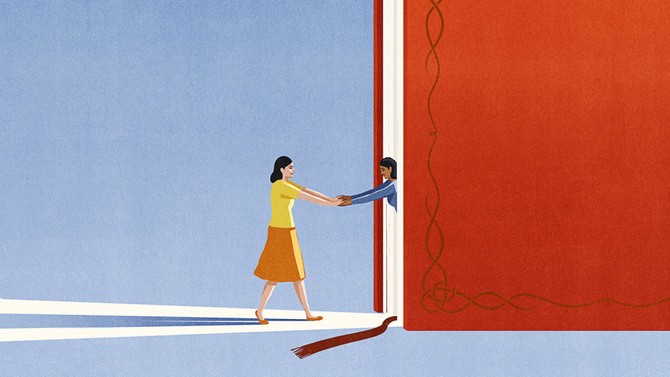
Illustration: Shout
Help Yourself
Every now and then, amid the clamor of obligations and extraneous irritants, something inside us urges that we slow down. Yet all too often, we ignore that whisper.
Once, a few years ago, as I juggled the demands of being a radio correspondent and writer while learning to parent my stepdaughter and tend to my aging mother, I felt myself coming unmoored. In need of radical intervention, I signed up for a week-long silent retreat at a Jesuit community in Wernersville, Pennsylvania. On my first morning there, I sat with my "spiritual director," tapping my watch and announcing that I'd given myself a deadline: seven days to relocate my calm center. We laughed at the incongruity of imposing a timetable on such a goal, but I was determined that by the end of my stay I'd be ready to face reality again, with renewed grace and insight. So I prayed. I meditated. I read Thomas Aquinas, Kathleen Norris, Saint Augustine. I walked in the woods. Gradually, the cacophony abated.
Of course, it didn't stay that way. And like most of us, I can't afford to regularly step out of the world to get my bearings. I need shortcuts to sanity, which is why I turn to the books on my nightstand—for solace, for stimulation, for exaltation.
Here are eight volumes with different approaches but the same core message: To serve our true purpose and find joy, we must first look inward.
Once, a few years ago, as I juggled the demands of being a radio correspondent and writer while learning to parent my stepdaughter and tend to my aging mother, I felt myself coming unmoored. In need of radical intervention, I signed up for a week-long silent retreat at a Jesuit community in Wernersville, Pennsylvania. On my first morning there, I sat with my "spiritual director," tapping my watch and announcing that I'd given myself a deadline: seven days to relocate my calm center. We laughed at the incongruity of imposing a timetable on such a goal, but I was determined that by the end of my stay I'd be ready to face reality again, with renewed grace and insight. So I prayed. I meditated. I read Thomas Aquinas, Kathleen Norris, Saint Augustine. I walked in the woods. Gradually, the cacophony abated.
Of course, it didn't stay that way. And like most of us, I can't afford to regularly step out of the world to get my bearings. I need shortcuts to sanity, which is why I turn to the books on my nightstand—for solace, for stimulation, for exaltation.
Here are eight volumes with different approaches but the same core message: To serve our true purpose and find joy, we must first look inward.
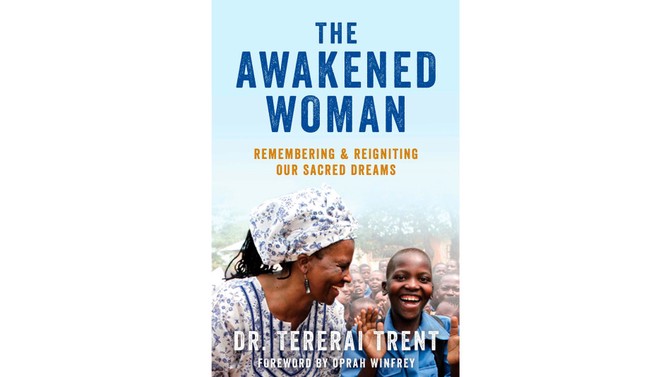
By Tererai Trent
288 pages; Atria/Enliven
At age 11, the Zimbabwean Trent was married off to a man who regularly beat her. By 18, she had four children, and at 22, despairing that she'd never leave her native village, she buried her precious goal of a higher education—she wrote down her wish, tucked the paper into a can, and covered it with dirt. But as her remarkable memoir/manifesto reveals, she went on to earn a PhD and launch a foundation to empower women. "We are a global matriarchal collective of...dreamers" who can "heal nations," she proclaims.
288 pages; Atria/Enliven
At age 11, the Zimbabwean Trent was married off to a man who regularly beat her. By 18, she had four children, and at 22, despairing that she'd never leave her native village, she buried her precious goal of a higher education—she wrote down her wish, tucked the paper into a can, and covered it with dirt. But as her remarkable memoir/manifesto reveals, she went on to earn a PhD and launch a foundation to empower women. "We are a global matriarchal collective of...dreamers" who can "heal nations," she proclaims.
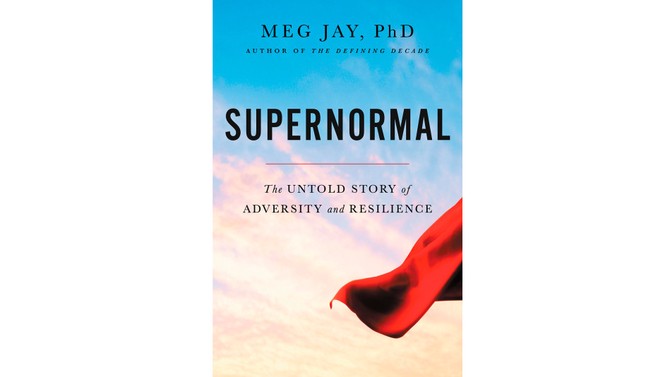
By Meg Jay, PhD
400 pages; Twelve
The clinical psychologist and author of The Defining Decade looks at childhood-trauma survivors who've succeeded in life despite their circumstances. Interweaving reportage, research, and clinical insights, Jay identifies the strategies these "supernormals" developed to elude victimhood and thrive.
400 pages; Twelve
The clinical psychologist and author of The Defining Decade looks at childhood-trauma survivors who've succeeded in life despite their circumstances. Interweaving reportage, research, and clinical insights, Jay identifies the strategies these "supernormals" developed to elude victimhood and thrive.
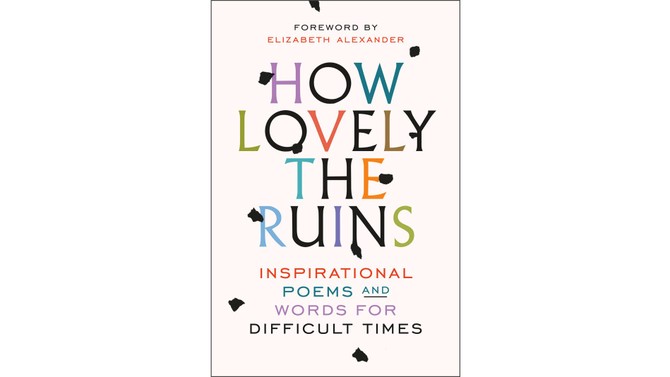
Foreword By Elizabeth Alexander
224 pages; Spiegel & Grau
This uplifting anthology of poetry and koanlike quotations from writers across time—Rainer Maria Rilke, Virginia Woolf, Claudia Rankine, Danez Smith among them—reminds us that, in Alexander's words: "The world has always been broken and has always been whole," but within us, "we have everything we need."
224 pages; Spiegel & Grau
This uplifting anthology of poetry and koanlike quotations from writers across time—Rainer Maria Rilke, Virginia Woolf, Claudia Rankine, Danez Smith among them—reminds us that, in Alexander's words: "The world has always been broken and has always been whole," but within us, "we have everything we need."
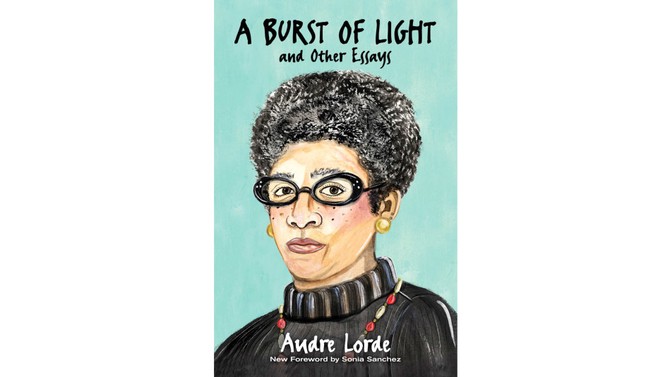
By Audre Lorde
144 pages; Ixia Press
"Women are powerful and dangerous," the self-described black feminist lesbian mother poet once observed. In this newly issued volume, Lorde's words—on race, cancer, intersectionality, parenthood, injustice—burn with relevance 25 years after her death.
144 pages; Ixia Press
"Women are powerful and dangerous," the self-described black feminist lesbian mother poet once observed. In this newly issued volume, Lorde's words—on race, cancer, intersectionality, parenthood, injustice—burn with relevance 25 years after her death.
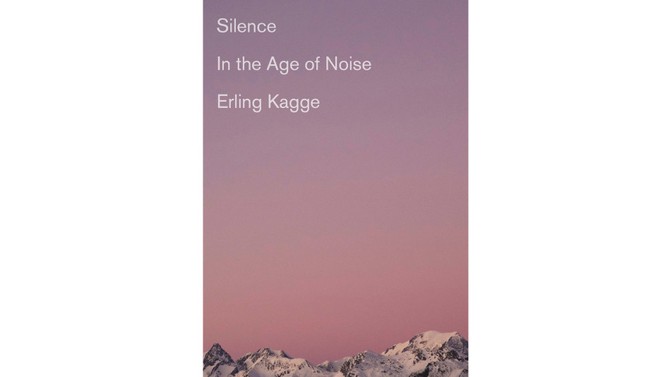
By Erling Kagge
160 pages; Pantheon
After spending 50 days alone in Antarctica, Kagge is clearly qualified to write about the soul-reviving benefits of quiet. In a series of lyrical vignettes, the Norwegian explorer muses on our brain's tendency to descend into chaos and the urgent need to contemplate "the silence that rests like a young bird in your palms."
160 pages; Pantheon
After spending 50 days alone in Antarctica, Kagge is clearly qualified to write about the soul-reviving benefits of quiet. In a series of lyrical vignettes, the Norwegian explorer muses on our brain's tendency to descend into chaos and the urgent need to contemplate "the silence that rests like a young bird in your palms."
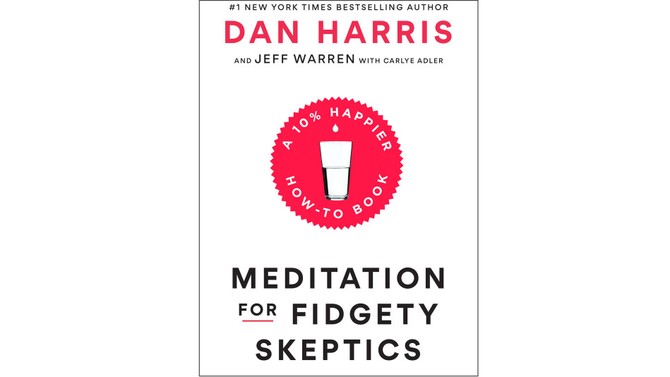
By Dan Harris
304 pages; Spiegel & Grau
The ABC-TV anchor, a "defender of worrying" who once had an anxiety attack on air, offers a hilarious and stirring account of his two-steps-forward-one-step-back campaign to sort "useless rumination" from "constructive anguish" via mindfulness, along with invaluable suggestions for following in his footsteps.
304 pages; Spiegel & Grau
The ABC-TV anchor, a "defender of worrying" who once had an anxiety attack on air, offers a hilarious and stirring account of his two-steps-forward-one-step-back campaign to sort "useless rumination" from "constructive anguish" via mindfulness, along with invaluable suggestions for following in his footsteps.
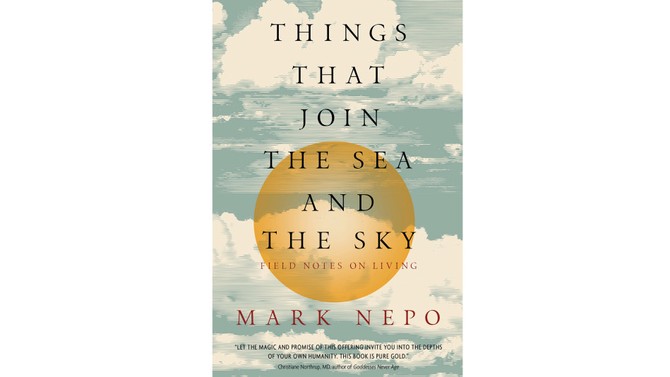
By Mark Nepo
264 pages; Sounds True
How do we unravel our existential fear? How do we fight the urge to withdraw into ourselves to avoid pain? How do we shed what is unnecessary? Drawing from his longtime journal, Nepo riffs on the sublime in the ordinary, always returning to the "sweet and sudden ache that lets me know I'm alive."
264 pages; Sounds True
How do we unravel our existential fear? How do we fight the urge to withdraw into ourselves to avoid pain? How do we shed what is unnecessary? Drawing from his longtime journal, Nepo riffs on the sublime in the ordinary, always returning to the "sweet and sudden ache that lets me know I'm alive."
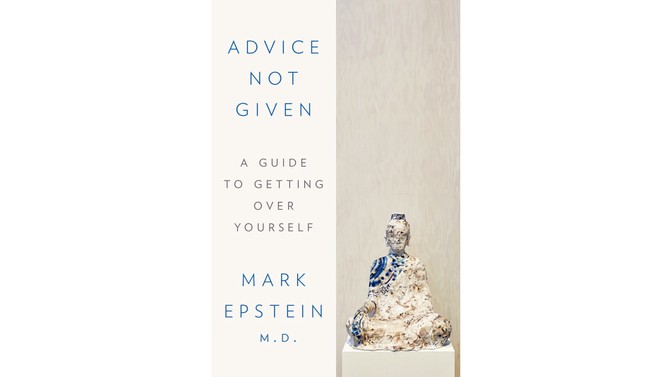
By Mark Epstein, MD
224 pages; Penguin Press
"Ego is the one affliction we have in common," Epstein writes in his deeply personal how-to guide that blends the lessons of Buddhism's Eightfold Path and psychotherapy. The takeaway? "If you are trying to find the peace of the ocean by eliminating the waves, you will never succeed."
224 pages; Penguin Press
"Ego is the one affliction we have in common," Epstein writes in his deeply personal how-to guide that blends the lessons of Buddhism's Eightfold Path and psychotherapy. The takeaway? "If you are trying to find the peace of the ocean by eliminating the waves, you will never succeed."
From the January 2018 issue of O, The Oprah Magazine

